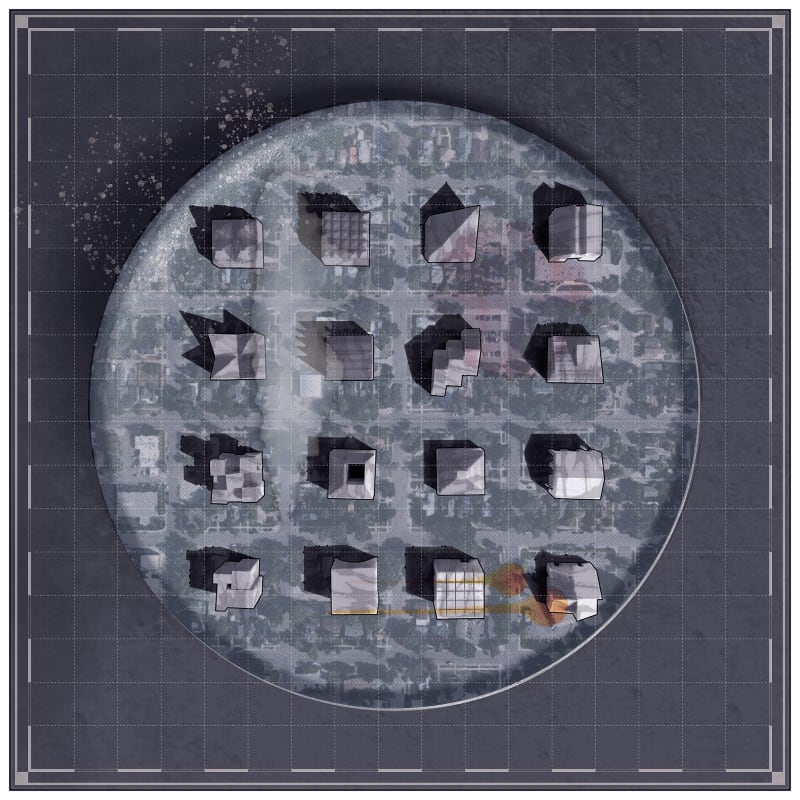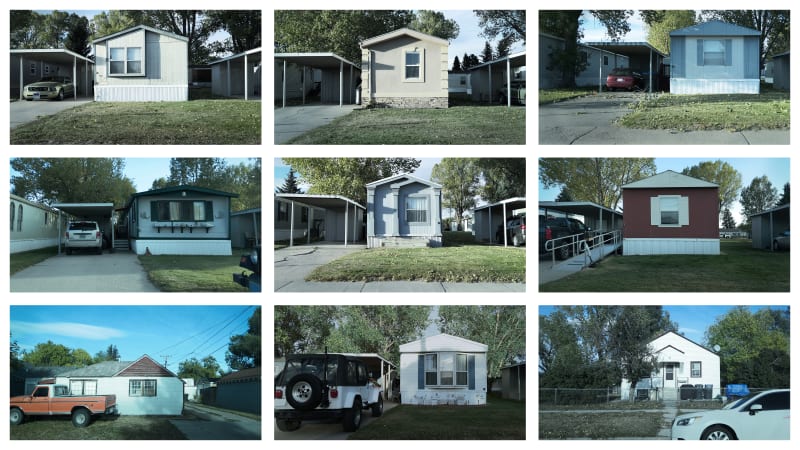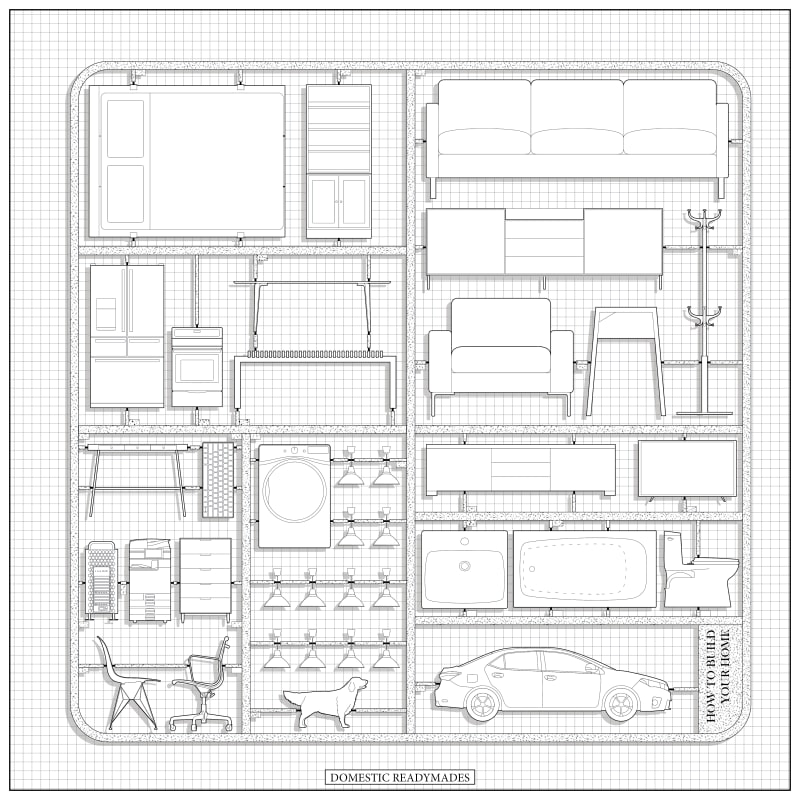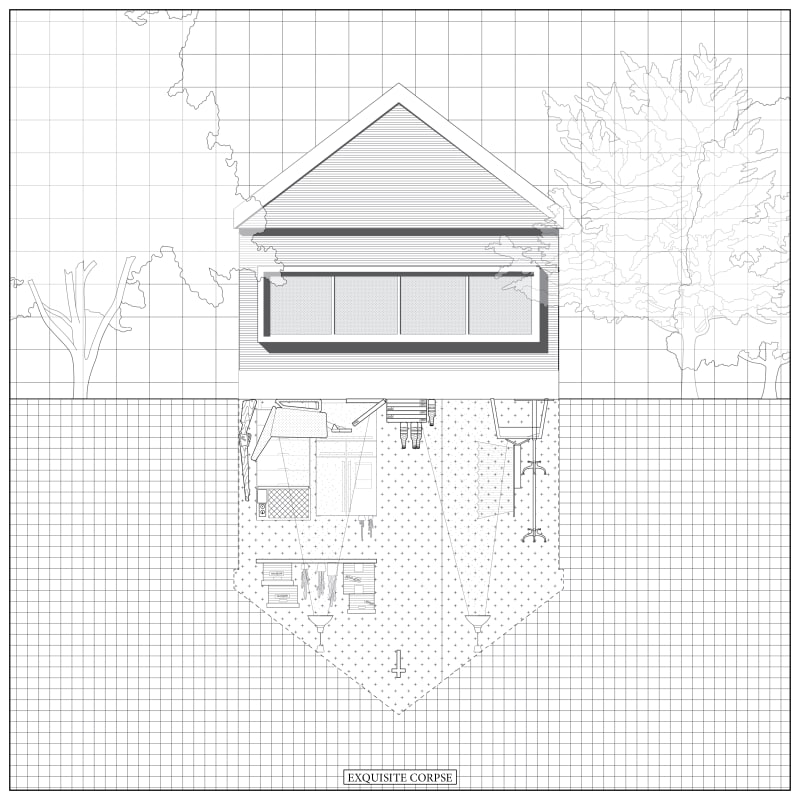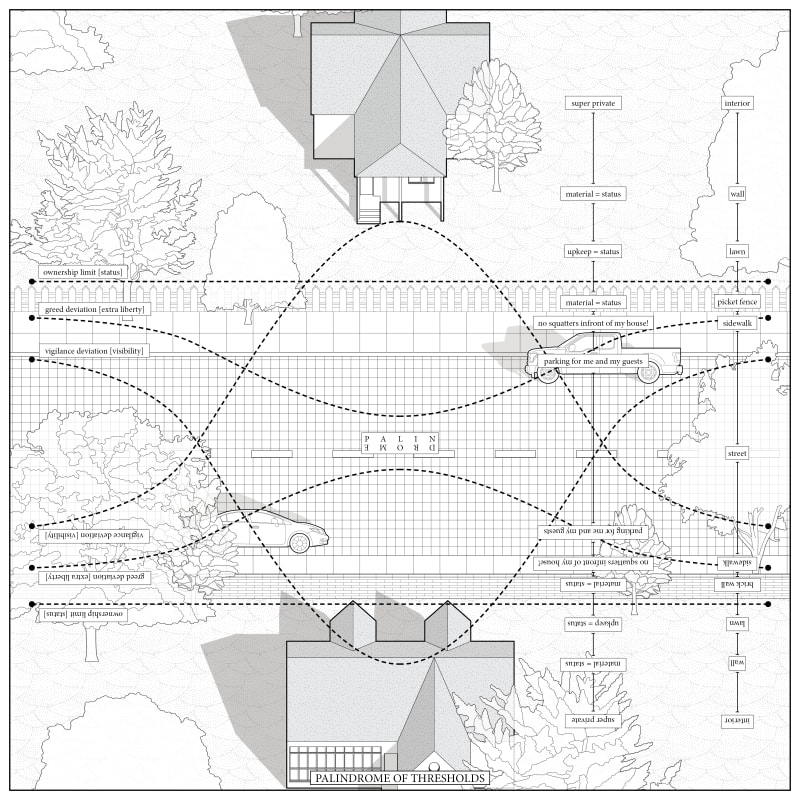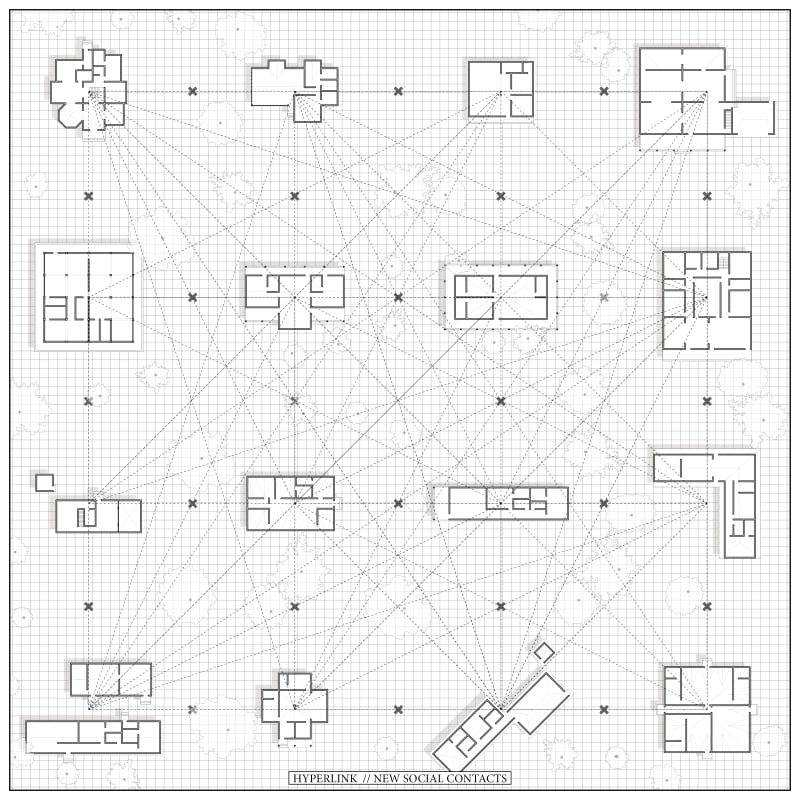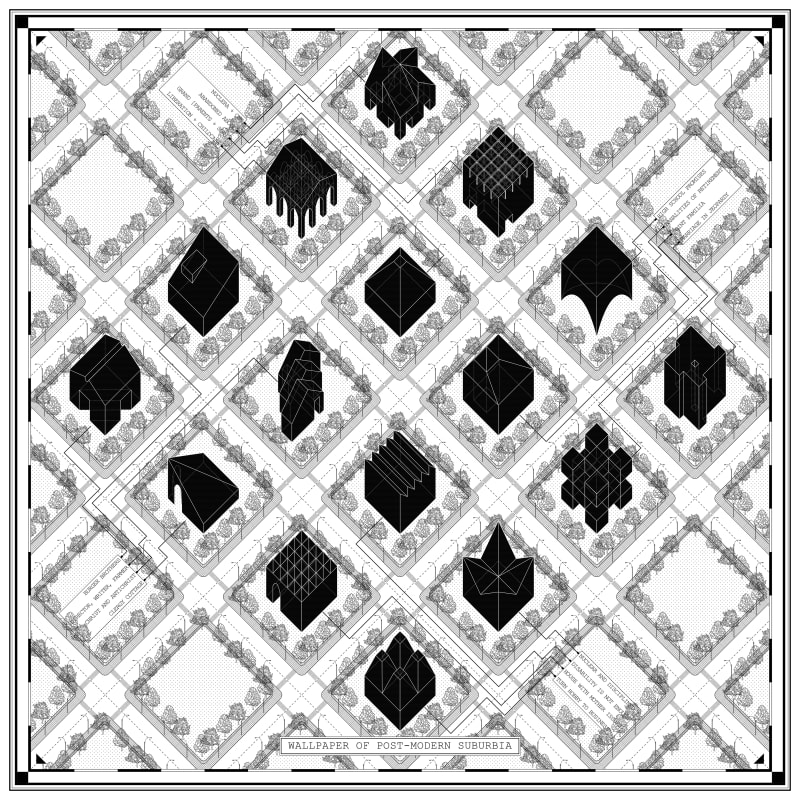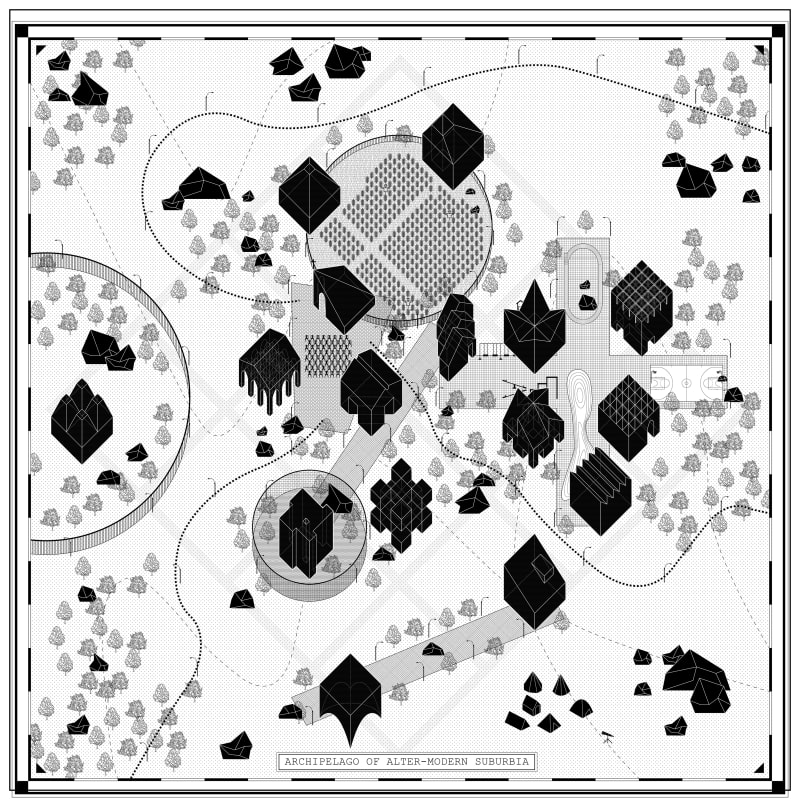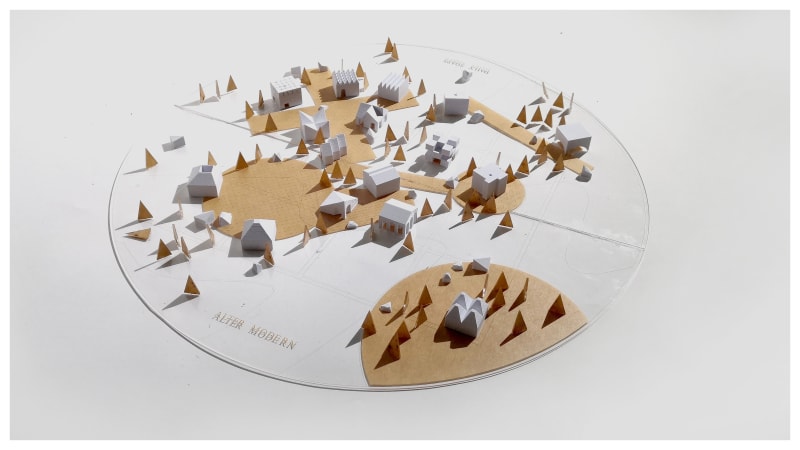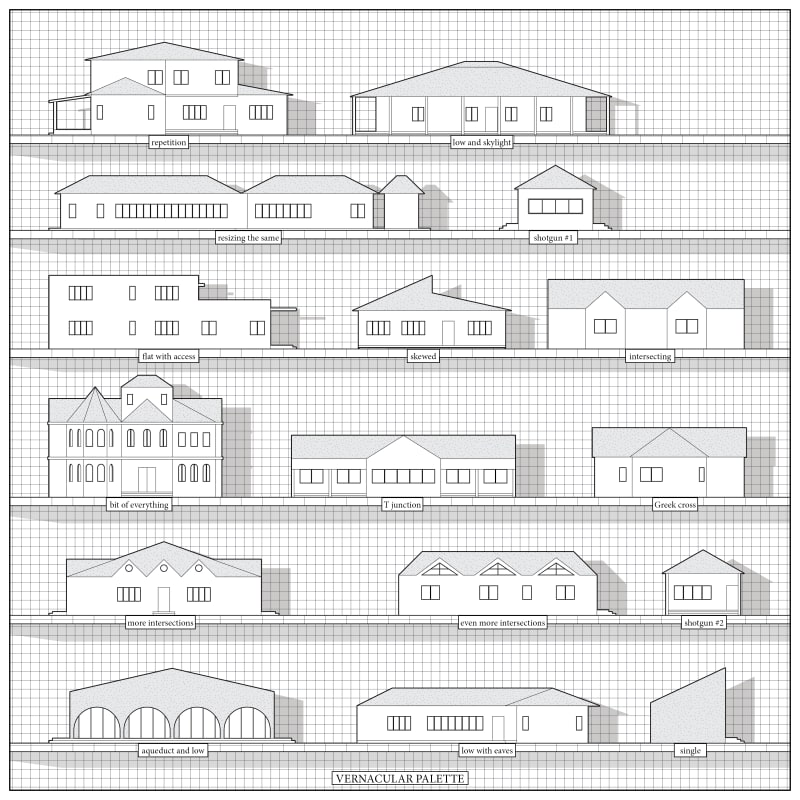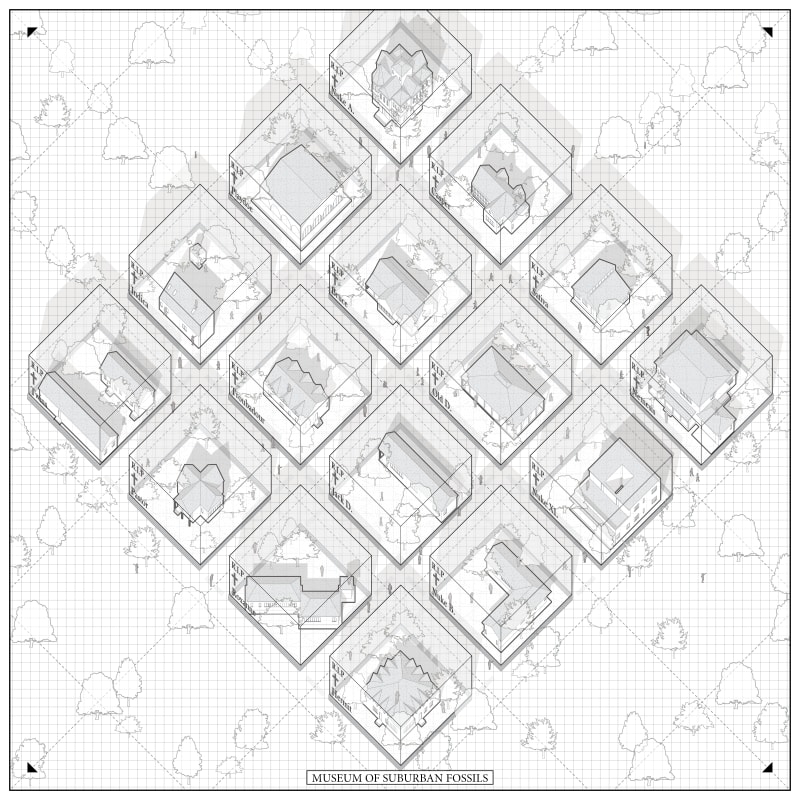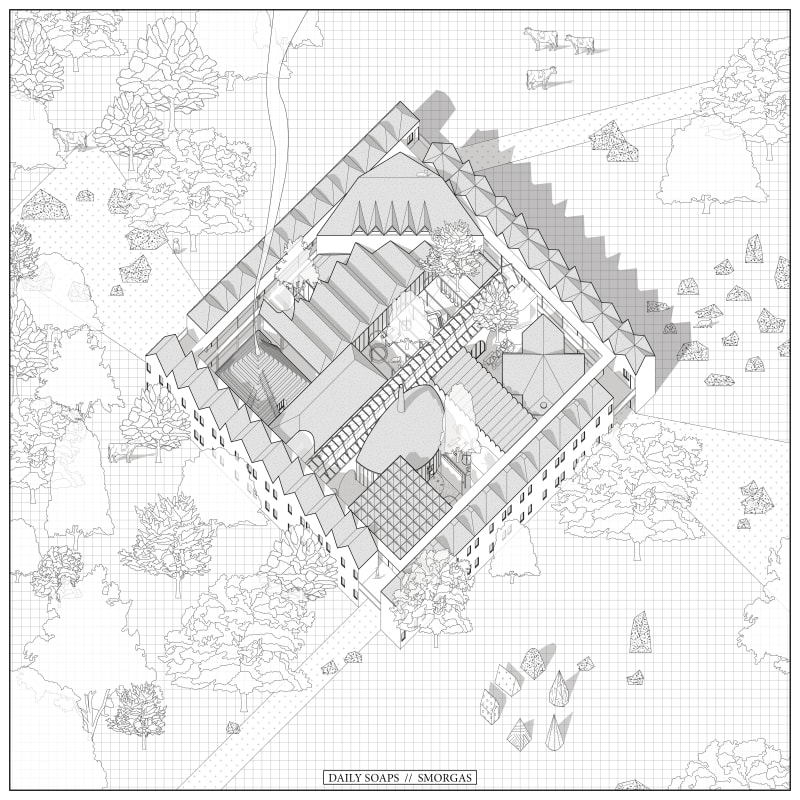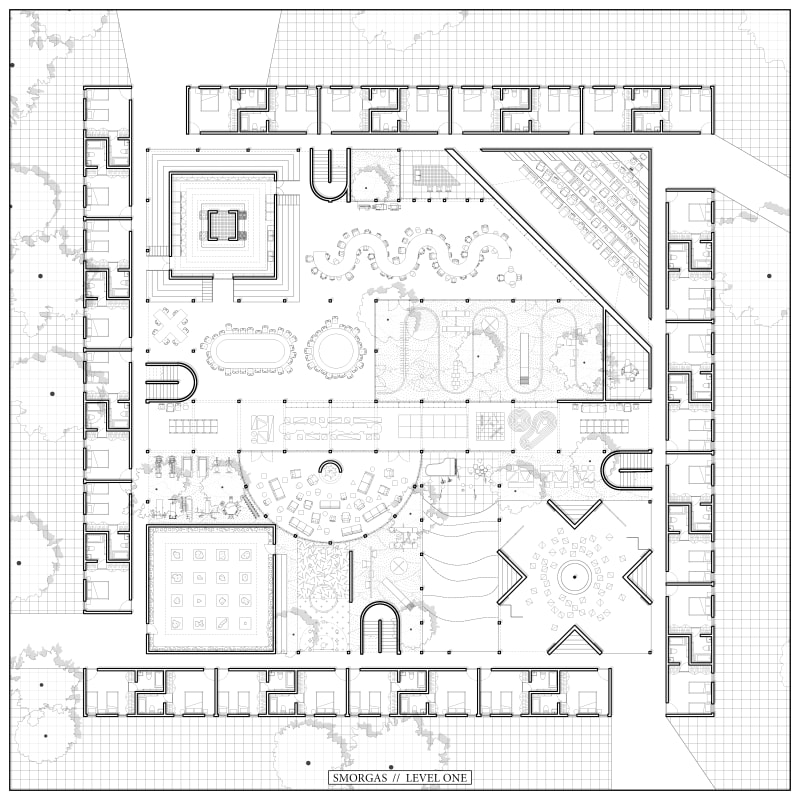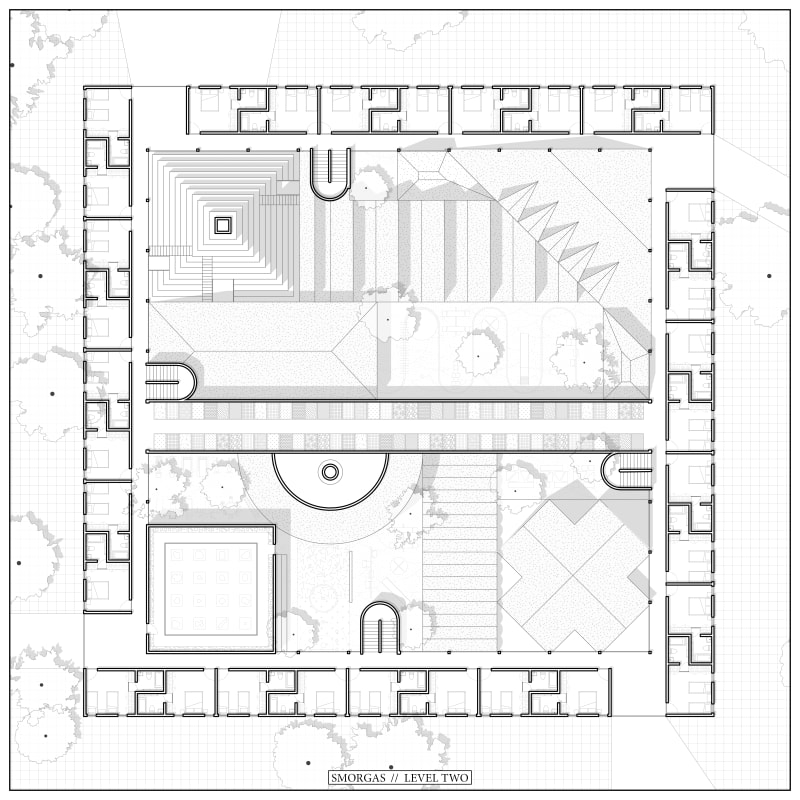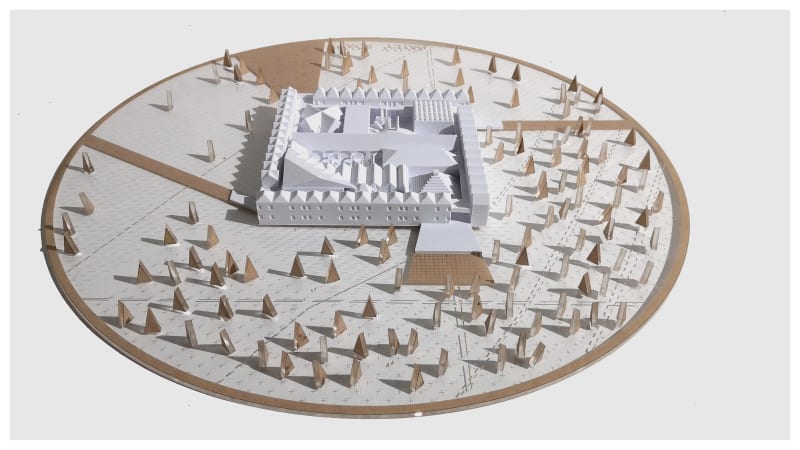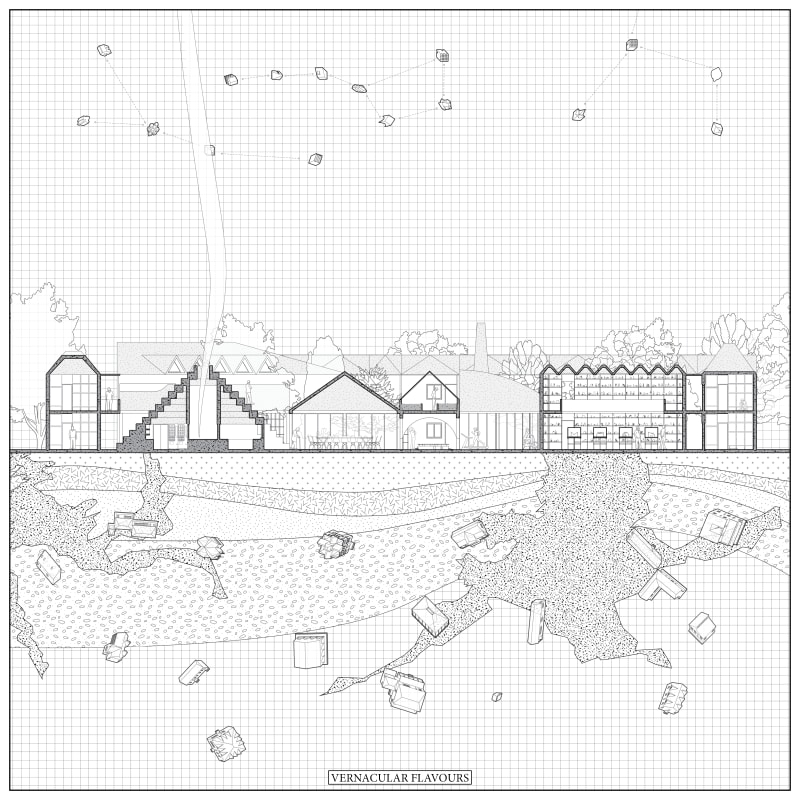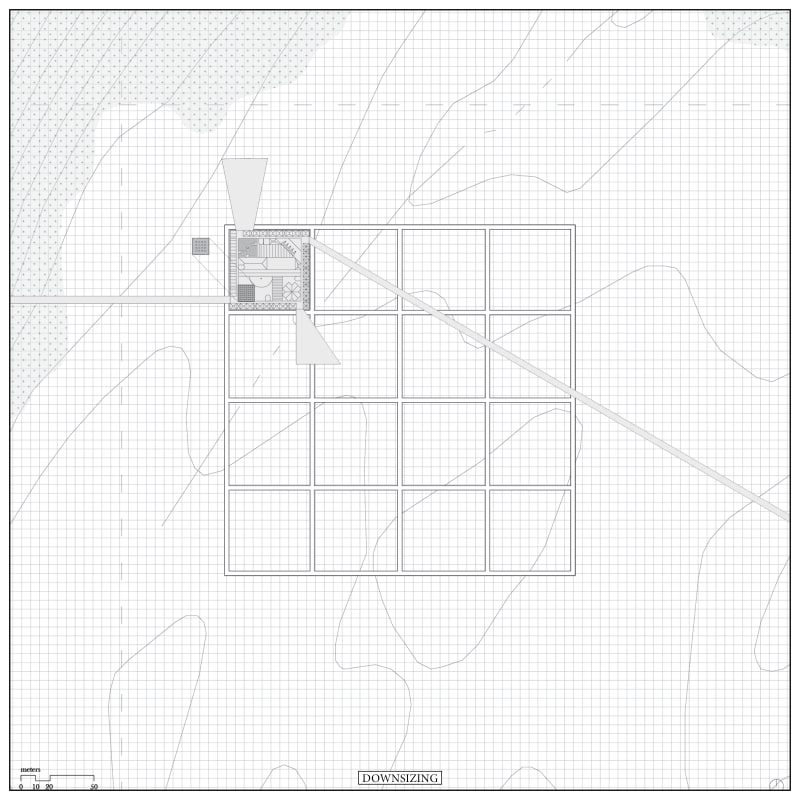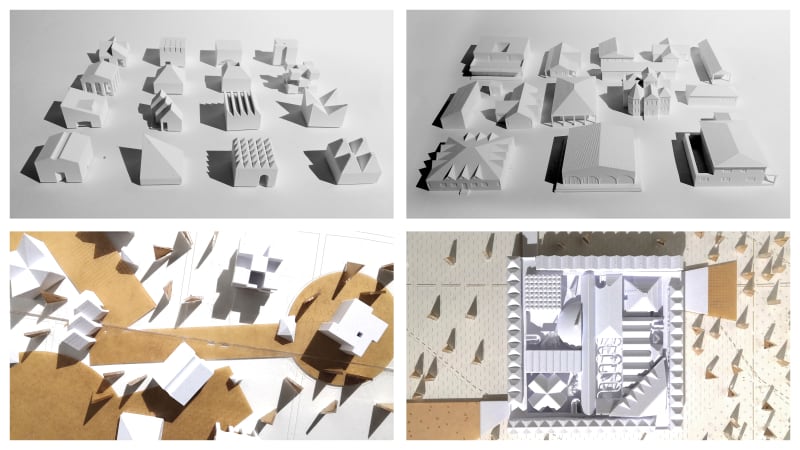Cheyenne embodies the social characteristic of secondary cities or suburban centers or peri-urban centers of America – “everyone knows everyone”. Under prevailing sprawl trends of suburbia, the Cheyennese social contract is buried under disassociated and isolated stelae governed by capitalism, consumerism, standardization, mass production, urban geometries, order, and privacy. They neatly cut land and society into geometric packages, standardizing the appeal of a home, the spread of society, movement patterns, and thresholds. These thresholds under the desire for privacy, large automobiles, and capital greed have become obese, causing social and physical fragmentation and a divergent urban drift. Suburbia does not hold enough people to justify the land they occupy. It’s like a fancy luncheon in a massive hall, with massive tables and poor scope for conversation. There is a need for new social contracts. Or just a revival of fossilized values.
Observed through a surrealist filter, the studio “Cheyenne Free State” is reviewed as a cry for help by a suburban American society. Trapped in a graveyard of equidistant domestic stelae, social potentials are separated by a palindrome of thresholds. Challenging suburban spatial redundancy and social absenteeism, the first half of the project is a critique, equating Cheyenne as an eerie ghost town or a museum of domestic fossils. Daily Soaps is a collection of fables and personas. Sixteen fables of domesticity cooked by collaging issues, conditions, heroes and delinquents, met and heard of in Cheyenne. Each fable represents a character and simultaneously a superset of characters. These domestic personas are masqueraded behind nomenclatures and asked to stand in their plots, like corpses in grave plots. There are rules, standards, curfews, and duplicity.
A social, professional, and architectural hyper-link is drawn to establish new social contracts. Privacy is overrated and if “everyone knows everyone”, there will be nothing to hide. Sharing is efficient and instead of building replicas of domestic readymades, resources and artifacts can be collated to have lesser items and eventually threaten the capitalist systems. This hyperlink socialism establishes a 1/16th downsized open sandwich or smorgas. Everyone sits around the table, talks, laughs, eats. Everything is public and only self-hygiene, sleep, and sexual life is considered worthy of privacy. The focus remains center stage – the common space. It brings back, rather, follows the trending work-live spatial mutations, emancipating domestic spaces from isolation and degeneration. This fictional architectural production is a giant mirror excavating the eerie reality of Cheyenne, followed by a cathartic moment of sixteen domestics leaving their graves and enjoying an afterlife in a virgin landscape. Will human inevitability end this new milieu or does the ‘happily ever after’ experience a new wave of domesticity, urbanity, and society? This is a piece of fiction. Or maybe a blueprint for a revolution. A critique, a proposal. Nostalgia and revival.

